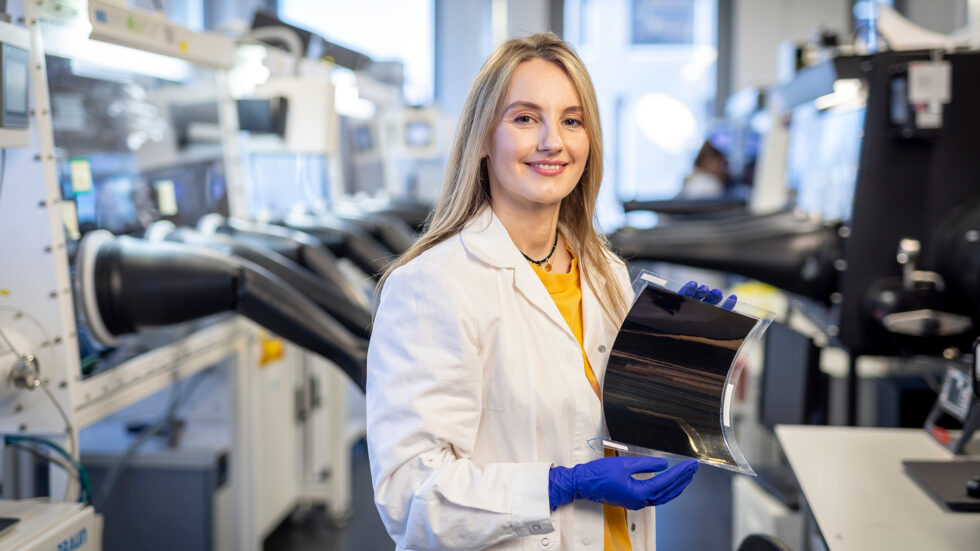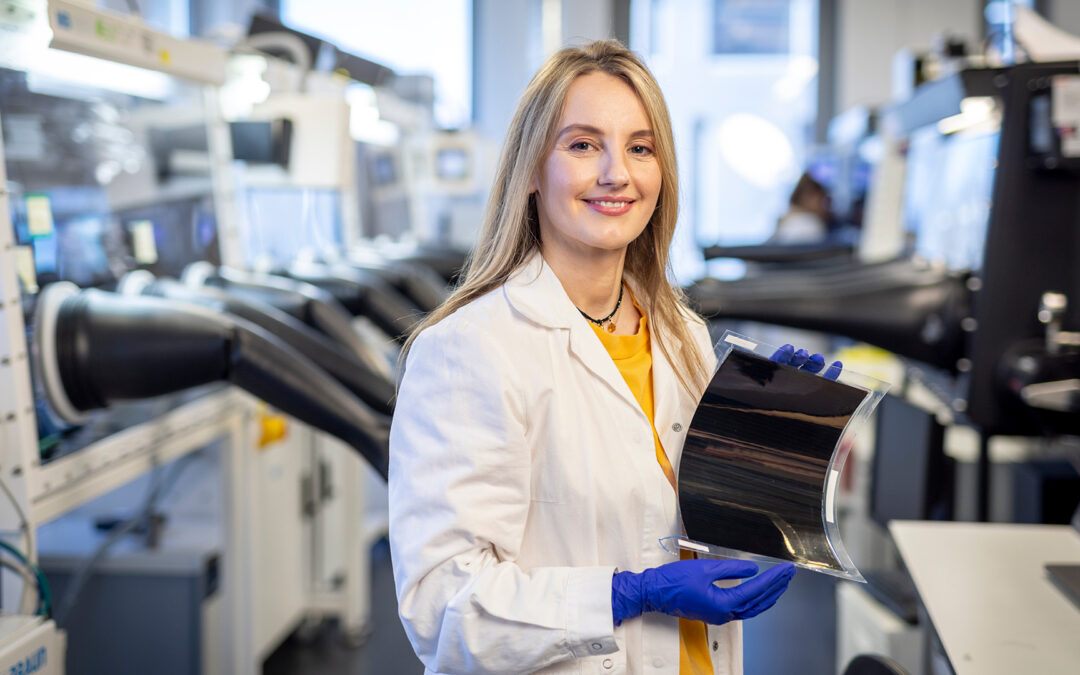Polish scientist Olga Malinkiewicz and the team she leads at Saule Technologies have won the European Inventor Award for their work in developing a printable solar cell that is cheaper and more flexible than traditional photovoltaics and can even produce power from artificial light.
They won in the small and medium enterprises category and were also chosen by the public for the popular prize award.
The European Patent Office (EPO), which presents the awards, hailed Malinkiewicz’s team for “advancing solar energy technology with their cost-effective and environmentally friendly” perovskite solar cells, which “could boost global renewable energy generation as a lightweight and flexible method of harnessing solar energy”.
Saule Technologies launched its, and the world’s, first production line of printed perovskite cells in the city of Wrocław in 2021. It produces thin, lightweight and flexible solar panels that are inkjet coated with a layer of perovskite. The cell comprises thin layers of organic film placed between two thin films of conductive electrodes.
The company claims that these are not only more efficient than silicon panels but are also cheaper to produce because perovskite does not require very high temperatures in the moulding process. They can be used in indoor spaces, such as with the dynamic in-store labels the company launched in Poland in 2021.
In December, the company became the first to receive approval from a leading certification body for perovskite cells.
Sorry to interrupt your reading. The article continues below.

Notes from Poland is run by a small editorial team and published by an independent, non-profit foundation that is funded through donations from our readers. We cannot do what we do without your support.
“The flexible, lightweight perovskite-coated polymer puts less structural pressure on buildings than solar panels, where a square metre of the perovskite solar cell can be held with two fingers…[whereas] similar-sized silicon panels weigh between 20 and 30 kilograms,” said EPO.
“This has opened up incredible commercial possibilities, from energy-generating sun blinds to plans for solar-powered consumer electronics like keyboards and mobile phones,” it added.
Malinkiewicz – a co-founder of Saule Technologies – supervises a team of 60 scientists and engineers working on developing new avenues for perovskite solar cell production.
Main image credit: European Patent Office press materials

